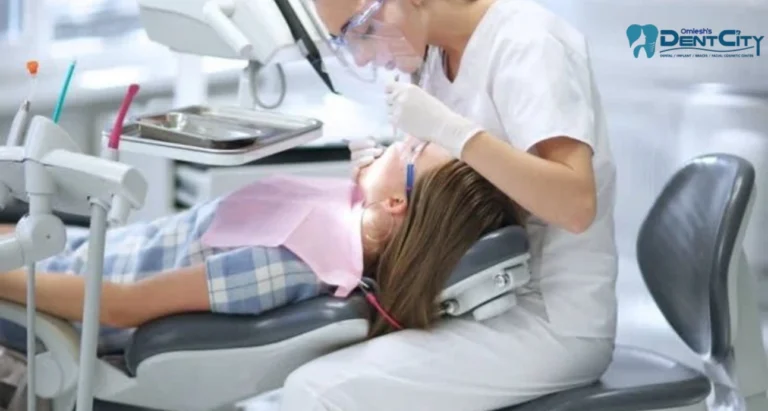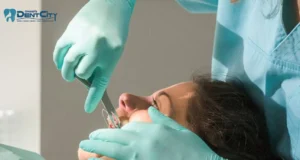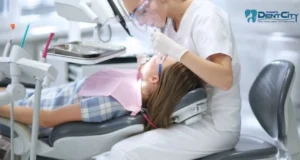- PRF vs PRP. Which One Is Better?
- Post And Core Build Up Treatment
- Gum Disease Treatment
- Dentistry For The Elderly
- Maxillofacial Prosthesis Treatment
- Braces Treatment
- Gap Closure In Between Teeth Treatment
- Bone Grafting And Bone Regeneration Treatment
- Full Mouth Rehabilitation Treatment
- Teeth Whitening Treatment
- Dental Implants Treatment
- Preventive Dentistry
- Veneers And Laminates
- Single Sitting Painless Root Canal Treatment
- Pit And Fissure Sealants Treatment
- Surgical Extraction Treatment
- Invisalign Treatment
- Laser Filling Treatment
- Kids Dentistry

PRF vs PRP. Which One Is Better?
PRF, or Platelet-Rich Fibrin, is a biomaterial derived from a person’s blood and used in medical and dental procedures to aid healing and tissue regeneration. It is created by centrifuging a blood sample without anticoagulants, which results in a clot rich in platelets, fibrin, and growth factors. PRF has gained popularity because it is natural, free of synthetic additives, and can accelerate wound healing while reducing inflammation.
PRP, or Platelet-Rich Plasma, is a concentrated solution of platelets derived from a person’s blood. It is widely used in regenerative medicine because it accelerates healing, reduces inflammation, and promotes tissue regeneration. Platelets are rich in growth factors, which are key in repairing tissues.
How is PRF (Platelet-Rich Fibrin) Made?
- Blood Collection:
- A small amount of the patient’s blood is drawn (usually 10-20 ml).
- Centrifugation:
- The blood is spun in a centrifuge at a lower speed compared to PRP.
- This slower speed ensures that platelets, fibrin, and white blood cells are retained in the middle layer.
- Separation:
- The centrifugation separates the blood into three layers:
- Top Layer: Plasma (mostly liquid).
- Middle Layer: Platelet-rich fibrin (PRF).
- Bottom Layer: Red blood cells.
- The centrifugation separates the blood into three layers:
- Clot Formation:
- Because no anticoagulants are added, the fibrin naturally forms a matrix or clot, trapping platelets and growth factors.
- Collection:
- The PRF clot is removed and shaped as needed for clinical applications.
How is PRP (Platelet-Rich Plasma) Made?
- Blood Collection:
- A small amount of the patient’s blood is drawn (usually 10-30 ml).
- Centrifugation:
- The blood is spun in a centrifuge at a higher speed compared to PRF.
- This separates the blood into layers:
- Top Layer: Platelet-poor plasma.
- Middle Layer: Platelet-rich plasma (PRP).
- Bottom Layer: Red blood cells.
- Addition of Anticoagulant:
- To prevent clotting during the process, an anticoagulant (like citrate) is typically added to the blood before centrifugation.
- Collection:
- The platelet-rich plasma layer is carefully extracted for use in treatment.
What Is The Difference Between PRP and PRF In Dental Treatments?
PRP (Platelet-Rich Plasma) and PRF (Platelet-Rich Fibrin) both use the patient’s blood to promote healing in dental treatments, but they differ in their preparation and application. PRP is created by drawing blood and processing it to concentrate the platelets in a liquid form. Anticoagulants are typically added to prevent clotting, allowing it to be injected into the treatment area. PRP is commonly used in procedures requiring quick healing, such as gum grafts, periodontal surgeries, and dental implants. Its primary benefit is the rapid release of growth factors, speeding up the recovery of soft tissues.
PRF, on the other hand, is processed without anticoagulants, resulting in a gel-like consistency that contains a higher concentration of fibrin, platelets, and growth factors. This allows PRF to form a natural matrix that supports long-term healing and is especially beneficial for bone regeneration, bone grafting, and sinus lifts. The sustained release of growth factors from PRF helps promote long-term tissue regeneration, making it ideal for bone-related procedures. While PRP offers quicker results for soft tissue, PRF is better for bone regeneration and supporting tissue stability over a longer period.
How Does PRP Promote Healing In Dental Implant Procedures?
PRP (Platelet-Rich Plasma) promotes healing in dental implant procedures by enhancing the body’s natural healing process. When applied to the implant site, PRP delivers concentrated platelets that release growth factors essential for tissue repair and regeneration. These growth factors accelerate the healing of both soft tissues (gums) and hard tissues (bone), improving the success of the implant. Additionally, PRP reduces inflammation and minimizes the risk of infection, leading to faster recovery, better implant stability, and a lower chance of complications. This helps ensure a smoother, quicker recovery post-implant surgery.
What Are The Top Applications Of PRP VS PRF In Modern Dentistry?
PRP (Platelet-Rich Plasma) and PRF (Platelet-Rich Fibrin) are transformative tools in modern dentistry, enhancing healing and tissue regeneration. PRP accelerates recovery in gum grafting, periodontal surgeries, and oral surgeries like bone grafting and cyst removal, while also improving implant stability and preventing bone loss after extractions. PRF, on the other hand, excels in bone grafting, sinus lifts, and socket preservation by stabilizing grafts, reducing inflammation, and promoting faster recovery. Both are natural, patient-specific, and effective in reducing healing time, pain, and complications, making them indispensable in achieving successful dental treatment outcomes.
Is PRP Safe For Use In Periodontal Surgeries Or Gum Grafting Procedures?
Yes, PRP is generally safe for use in periodontal surgeries and gum grafting procedures. Since PRP is derived from the patient’s blood, there is minimal risk of allergic reactions or rejection. It helps accelerate healing by delivering a concentrated dose of platelets and growth factors, which promote tissue regeneration, reduce inflammation, and speed up recovery. PRP also enhances the success of gum grafts by supporting soft tissue healing and improving blood circulation to the treated area. As with any procedure, it’s important to consult with a dentist to ensure suitability for individual cases.
How Often Can PRP Or PRF Be Used In Dental Procedures For The Same Patient?
Here is a table summarizing how often PRP and PRF can be used in dental procedures for the same patient:
Factor | PRP (Platelet-Rich Plasma) | PRF (Platelet-Rich Fibrin) |
Frequency of Use | Can be used multiple times, typically after a few weeks between treatments for healing. | Can be used frequently, with minimal risk of overuse, as it supports long-term healing. |
Interval Between Uses | Generally, a few weeks to a few months depending on the procedure and recovery rate. | Can be used more often in bone and tissue regeneration, but intervals should allow for full healing. |
Recommended Frequency | Often used once or twice per treatment for specific procedures like implants or gum grafts. | Can be used multiple times for ongoing treatments, especially in bone grafting or sinus lifts. |
Limitations | Frequent use may cause slight tissue irritation or excessive inflammation if not managed properly. | PRF’s natural composition allows for frequent use without significant risk. |
How Long Does The Healing Process Take When PRP Or PRF Is Used In Dental Procedures?
The healing process with PRP (Platelet-Rich Plasma) or PRF (Platelet-Rich Fibrin) is typically faster compared to traditional methods. Initial healing begins within 3–5 days, and significant recovery occurs in 1–2 weeks. For procedures like bone grafting or implants, full healing and tissue regeneration may take 3–6 months, depending on the complexity of the treatment and individual factors like age and overall health. PRP and PRF enhance healing by delivering concentrated growth factors that promote faster tissue and bone regeneration, reducing recovery time overall.

To access
Dental
Services
Address
C-8/33, Near Gurudwara, Opp. Pillar 380, Pocket C-8, Sector-8, Rohini, New Delhi - 110085
Opening Hours
- Monday -Saturday: 9:30 AM - 8:00 PM
- Sunday: 9:30 AM - 1:00 PM
What Does a Patient Say About Our Dental Care?
Had a wonderful experience! Dr Pankaj and Dr Savita are very patient ,cooperative and experienced professionals.Staff was also polite and professional. Highly recommend!
Bhawna Garg Bhawna GargHad multiple sessions for RCT, filling, tooth extraction and cleaning. Dr Pankaj and Dr Savita - both are highly experienced and will treat your case with utmost care regardless of the complexity. One of the best dental clinic in North West Delhi. Staff is also well organised with timely sessions, updates, reminders, paperwork, prescription, etc. Location is also easily accessible. Feel free to visit for all dental needs.
Prateek Malik Prateek MalikI had great experience at Omlesh's Dentcity. Dr.Savita and her team was very kind in addressing my dental issues and procedures they follow for the same. I would highly recommend Omlesh's Dentcity for any dental treatment..!!
Parishi Jain Parishi JainI definitely had a wonderful & Great experience at Omlesh's Dentcity. Dr.Pankaj & Dr.Savita was very kind in addressing my dental concerns. We highly recommend Omlesh's Dentcity for any dental treatment..!!
Amit Goyal Amit GoyalExcellent setup,excellent work,Dr. pankaj & Dr. savita are very experienced n very cooperative, fully satisfied,highly recommended.
Ajay Singla Ajay Singla






I am A K Saxena , Chief Engineer ( Retd ) , Military Engineer Services . I wish to share experience of Madhu Saxena , my wife , regarding dental treatment undergone recently by her at Omlesh Dentcity clinic at Park Hospital , Gurgaon . She was having acute sensitivity in teeth as the enamel had eroded and nerves exposed .There was also gradual reduction in size of teeth . She consulted Dr Pankaj Goel , Dental Surgeon at aforesaid Dental clinic who after detailed examination advised full mouth treatment which included RCT and Zirconia capping of all the teeth .
Anil Saxena Anil Saxena